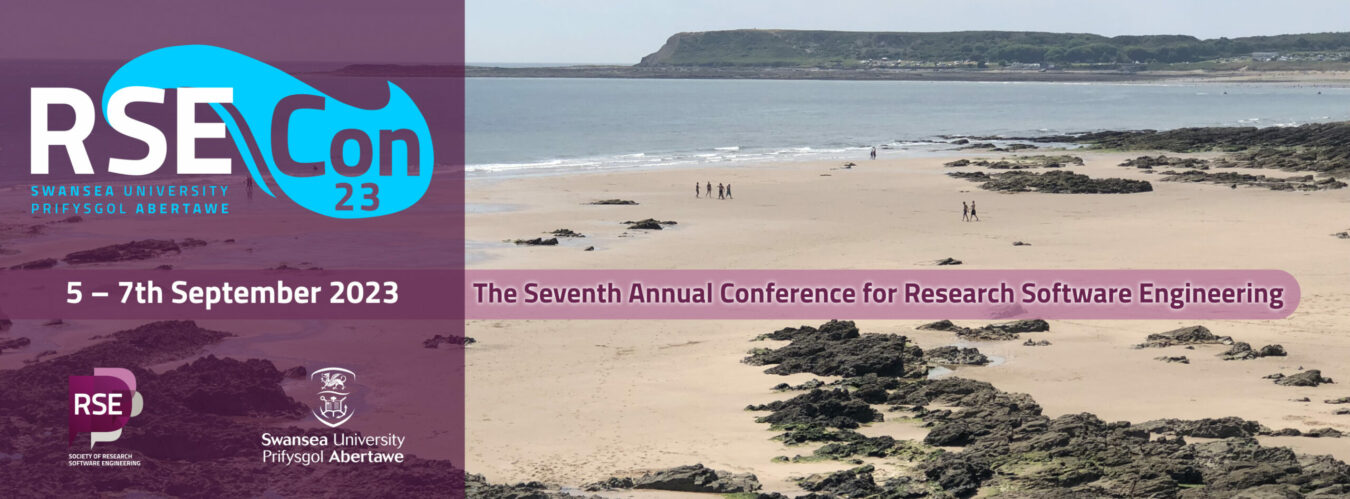Talks are traditional presentations (e.g. using slides or similar), given live to an audience who will be joining both in-person and online. Talks will last 20 minutes with an additional 5 minutes for questions and will be grouped with talks on similar themes where this is possible. They should be engaging, and may include videos or short demonstrations. Their aim is to inform the audience about something that would interest and educate them in the field of Research Software Engineering.
Planning your submission
Talks focus on sharing information and experience rather than demonstrating technical skills. If that is your aim, think about submitting a Workshop or a Walkthrough instead. Talks also typically represent a single point of view whether yours, or that of the collaboration you represent. If you would like an event to show a diversity of viewpoints, then consider submitting a Panel.
Note that this conference is a hybrid event and participants will be able to attend your talk remotely. It is expected that talks should provide an equivalent experience for online and in-person participants – we will provide guidance for accepted submissions. We may not be able to broadcast video of the speakers from all rooms and may be limited to audio and slides.
Topics for talks could include:
- Highlighting a piece of research software work that has been successful
- Raising awareness of a tool or technique that others could find useful
- Sharing lessons learned during a software project, regardless of its success or otherwise
When submitting your proposal for a talk you should consider:
- Title and abstract: Make this informative and eye-catching as this will be used in the conference programme.
- Audience: Would your target audience be required to have any prerequisite skills/background knowledge e.g. knowledge of a particular language or software package?
- Outcomes: How will your attendees benefit from your session? What do you expect them to gain/learn?
- Accessibility: Accessibility guidance is available to help you make your talk successful. Some key pieces to consider are:
- Have you thought about how accessible your session will be to a diverse conference audience (i.e. different skill sets, different work backgrounds)?
- Visually, have you considered the colours chosen as well as the shape and size of graphics and fonts? Many accessibility checkers are available online and will provide useful feedback.
- Will someone who views a recording of your event be able to contact you in future?
You can also use automated accessibility checking tools to help ensure that you haven’t missed anything.
Wider dissemination after the conference and licensing
All materials will be published on the conference website, and recordings will be shared via YouTube. All material will be shared under the Creative Commons Attribution (CC BY) licence unless an alternative open licence is agreed in advance with the conference committee. Recordings, subtitles, slides, and any additional Q&A will also be made available via Zenodo.
Mentorship
We are happy to provide mentors who can help you put together your session. Mentors can help by reviewing draft slides, listening to a rehearsal, providing advice on making material engaging, reviewing adherence to accessibility guidelines, advising on hybrid delivery, etc. You can let us know if you would like a mentor if you are accepted.
Example Submission
This submission was very highly rated by our reviewers last year – you may wish to use this as an indication of the details which should be included and how to present your idea.
Title
Research software on wings: Automating software publication with rich metadata
Abstract
Publishing your research software in a publication repository is the first step on the path to making your software FAIR! But the publication of just the software itself is not quite enough: To truly enable findability, accessibility and reproducibility, as well as making your software correctly citable and unlock credit for your work, your software publication must come with the rich metadata that support these goals.
But where will these metadata come from? And who should compile and publish them? Will RSEs have to become metadata experts as well now?
In this talk, we argue that source code repositories and connected platforms often already provide many useful metadata, even if they are distributed over heterogeneous sources. We present an open source software toolchain that will help harvest these metadata, process and collate them, preparing them for submission to publication repositories. This toolchain can be automated via continuous integration platforms, and publish the prepared metadata with or without the respective software artefacts for open and closed source software alike. It can also feed the collated metadata back to source code repositories, or provide them in different formats for further reuse.
The talk will outline the concept for the automated publication of research software with rich metadata and describe the current state of the software toolchain that is being developed. It will also detail the CI and publication platforms it will initially be available for, additional resources such as documentation and training materials, and give an outlook on sustainability and future development.
Audience
When RSEs create research software that is being used in research, this will always warrant publication of the software, for reasons of credit, accessibility, and reproducibility. Hence, this talk will be of interest to all RSEs who work on publishable research software (i.e. potentially all RSEs), independently of research domain. This talk will be especially interesting to RSEs working on non-open (i.e., closed/inner) source software, as the presented workflows are applicable also in situations where source code and other software artifacts cannot be shared, but metadata can still be published to fulfill the requirements for FAIR software publication. The audience will also have the chance to test drive and inform further development of the presented workflows at the submitted workshop “Cooking FAIR research software with HERMES”.
Expertise Level
Practitioner, Expert
